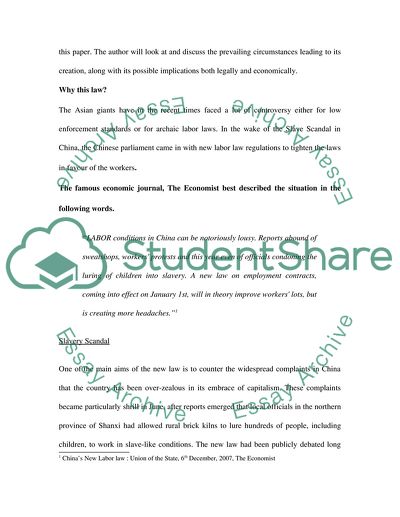Cite this document
(The New Labour Contract Law in China Essay Example | Topics and Well Written Essays - 4750 words, n.d.)
The New Labour Contract Law in China Essay Example | Topics and Well Written Essays - 4750 words. Retrieved from https://studentshare.org/law/1712950-the-new-labour-contract-law-in-china
The New Labour Contract Law in China Essay Example | Topics and Well Written Essays - 4750 words. Retrieved from https://studentshare.org/law/1712950-the-new-labour-contract-law-in-china
(The New Labour Contract Law in China Essay Example | Topics and Well Written Essays - 4750 Words)
The New Labour Contract Law in China Essay Example | Topics and Well Written Essays - 4750 Words. https://studentshare.org/law/1712950-the-new-labour-contract-law-in-china.
The New Labour Contract Law in China Essay Example | Topics and Well Written Essays - 4750 Words. https://studentshare.org/law/1712950-the-new-labour-contract-law-in-china.
“The New Labour Contract Law in China Essay Example | Topics and Well Written Essays - 4750 Words”, n.d. https://studentshare.org/law/1712950-the-new-labour-contract-law-in-china.


